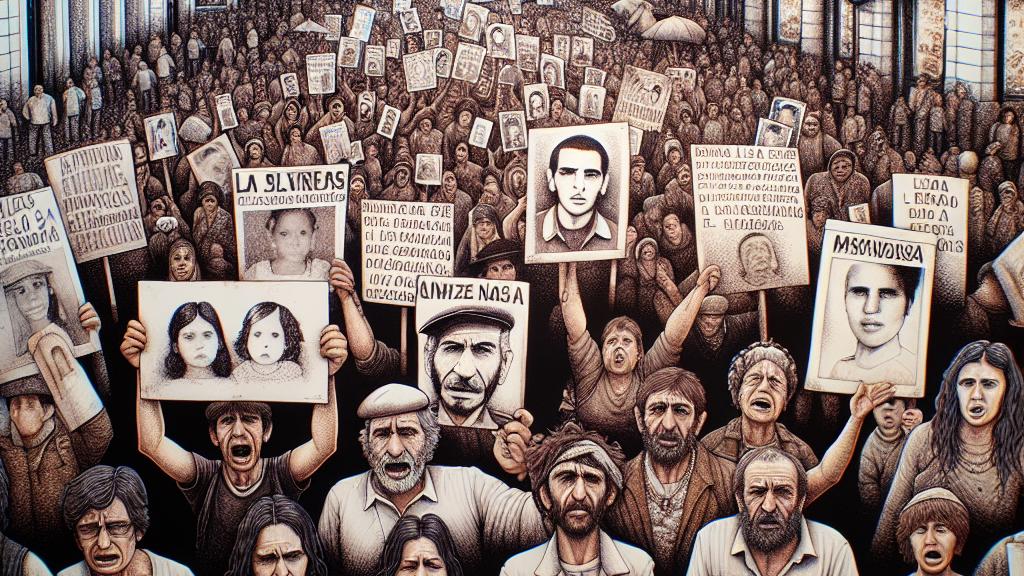Families of the 'Missing' Haunt Pope Francis
Overview
- Pope Francis feels the weight of Argentina's burden from its past dictatorship.
- The emotional pleas of families searching for their loved ones resonate deeply.
- A pressing call for truth and accountability permeates his papacy.

The Shadows of a Dark History
In the heart of Argentina, a nation bursting with culture yet scarred by the brutal military dictatorship from 1976 to 1983, the haunting stories of thousands who disappeared linger in the air. These families, often holding fading photographs of their loved ones, represent a profound longing for closure. Their relentless quest for justice intertwines with the very essence of Pope Francis's identity as the first pope from Argentina. Amid the bustling streets of Buenos Aires, groups like the 'Madres de Plaza de Mayo' march with brave resolve, demanding recognition for their lost children, whose voices were silenced decades ago. Such public displays, marked by poignant chants and heart-wrenching testimonials, serve as powerful reminders to the Pope of the unresolved histories that shape their lives — a vivid testament to the fact that true healing begins only when the past is confronted head-on.
Symbols of Memory and Resistance
Recently, the discovery of a retired plane, infamous for executing what were later termed 'death flights' during the dictatorship, has reignited both public anger and communal memory. These planes were not mere relics; they encapsulated the horror of a regime that discarded victims into the depths of the ocean, a fate that befell too many innocent lives. As Pope Francis witnesses these symbols of terror, he realizes they are not only historical markers but also calls to action. For the 'Madres de Plaza de Mayo,' their advocacy creates an unyielding pressure on the Pope. Their poignant stories, laden with grief yet imbued with resilience, push him to use his platform to advocate for justice and acknowledge the pain of the victims. How could he stand idly while their struggles echo in every corner of the nation?
A Path Towards Healing and Reconciliation
As he reflects on his own mortality, Pope Francis has expressed a desire for a simple funeral — one defined by humility rather than grandeur. This wish is significant, as it emphasizes his commitment to dignity even in death. He advocates for a single vigil that honors unity over separate celebrations, shedding light on the value of coming together in grief. Such a stance not only encapsulates his understanding of communal mourning but also signifies a broader mission: to initiate a dialogue about the historical wounds that plague Argentina. Each day, as he fulfills his papal duties, he embodies hope and the potential for reconciliation. In acknowledging the painful history of the dictatorship and honoring the lives lost, Pope Francis exemplifies that genuine healing can only flourish when the stories of the 'missing' are cherished, ensuring they find a place in the narrative of a nation yearning for peace.

Loading...